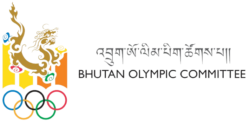Responding to an invitation from IOC President Thomas Bach, the senior representatives of the Olympic Movement’s key stakeholders met today at the IOC headquarters in Lausanne for the 2nd Olympic Movement Coordination Meeting.The meeting formed part of the on-going open dialogue and consultations that the IOC is looking to increase with its main stakeholders on the main topics of interest and concern to the Olympic Movement.
On this occasion, the subjects addressed included the fight against doping, the fight against match-fixing and illegal betting, the sports calendar and autonomy and good governance in the Olympic Movement.
Regarding the fight against doping, the participants endorsed the IOC Executive Board’s guidance paper on World Anti-Doping Agency (WADA), which was previously accepted by the Olympic Movement candidate for the WADA presidency, Craig Reedie. The participants reaffirmed their support for the candidate and the submission by the IOC, on behalf of the Olympic Movement, for the revision of the World Anti-Doping Code, which reinforces the Olympic Movement’s zero-tolerance policy.
The participants also asked the next WADA President to address a number of issues at the next Olympic Movement Coordination Meeting in 2014, and called on WADA to strengthen its role in research and as a service organisation. They also called for closer cooperation between International Sports Federations (IFs) and National Anti-Doping Organisations (NADOs) and between NADOs and national governments.
With regard to the fight against match-fixing and illegal betting, participants agreed to increase their coordinated efforts, under the IOC’s leadership, in order to preserve the basic principles of the Olympic Movement and the integrity of sport.
It was agreed that the IOC will set up a special unit within the IOC to coordinate efforts in this regard. This unit will work on risk prevention and the dissemination of information, and will support the harmonisation of rules of the Olympic and Sports Movement. These rules will be based on examples from some of the IFs already working on this issue, such as FIFA, which has already applied severe sanctions.
The participants re-affirmed the IOC’s leadership role. With respect to the sports calendar, the participants agreed that any new initiative has to respect the uniqueness of the Olympic Games. It means that neither the Olympic Programme nor Games revenues should be adversely affected in any way.
In order to ensure the respect of these principles, the participants agreed to the creation of a consultative working group under the leadership of the IOC, composed of the main stakeholders of the Olympic and Sporting Movement, which will compile a comprehensive sporting calendar of current events. This working group will also discuss the priority of current and future sports events within the global calendar.
The meeting also reaffirmed that autonomy is a prerequisite for the successful functioning of the international sports movement. Only autonomy allows the worldwide application of sporting rules. But at the same time, autonomy does not mean independence from the laws of a country. Sports development requires good cooperation with governments and public authorities.
The participants decided to create an experts’ network of Olympic Movement stakeholders under the leadership and coordination of the IOC.
This network will deal with two main issues: the preservation of autonomy and strengthening good governance and the integrity of sports organizations. It will improve the exchange of information and sharing of best practices on autonomy and governance-related matters. In this regard it was agreed to renew efforts to achieve full implementation among Olympic and sports organizations of the “Basic Universal Principles of Good Governance” approved at the last Olympic Congress. In the event of conflict the network will appoint a specific taskforce to mediate and to help resolve issues.
Finally, the IOC President presented subjects that form part of his mandate’s priorities, such as the sustainability of the Olympic Games through reconsidering the bidding procedure, reviewing the Olympic programme, and leaving a positive legacy; protecting the athletes’ health and integrity and caring about their lives after their sporting careers; and developing a strategy for bringing young people into sport.
He invited the participants to share their ideas on these subjects and to be part of the permanent dialogue and on-going reflection that the IOC wishes to increase with its main stakeholders. This dialogue will have continuity through the IOC’s own bodies.
All the participants indicated their appreciation for the opportunity to be part of this open dialogue and have already accepted an invitation from the IOC President to attend the third Olympic Movement Coordination Meeting, which will be held in the first half of 2014.
*LIST OF PARTICIPANTS
Thomas BACH, IOC President
Sheikh Ahmad Al-Fahad AL-SABAH, ANOC President
Joseph S. BLATTER, FIFA President
Claudia BOKEL, Chairperson of the IOC Athletes’ Commission
John D. COATES, AC, IOC Vice-President
Lamine DIACK, IAAF President
Nawal EL MOUTAWAKEL, IOC Vice-President
René FASEL, AIOWF President
Patrick HICKEY, IOC EB Member
Peng LIU, Chinese Olympic Committee President
Julio César MAGLIONE, FINA President
Lawrence PROBST III, United States Olympic Committee President
Craig REEDIE, IOC Vice-President
Francesco RICCI BITTI, ASOIF President (via video link)
Marius VIZER, SportAccord President
Ching-Kuo WU, IOC EB Member
Alexander ZHUKOV, Russian Olympic Committee President
